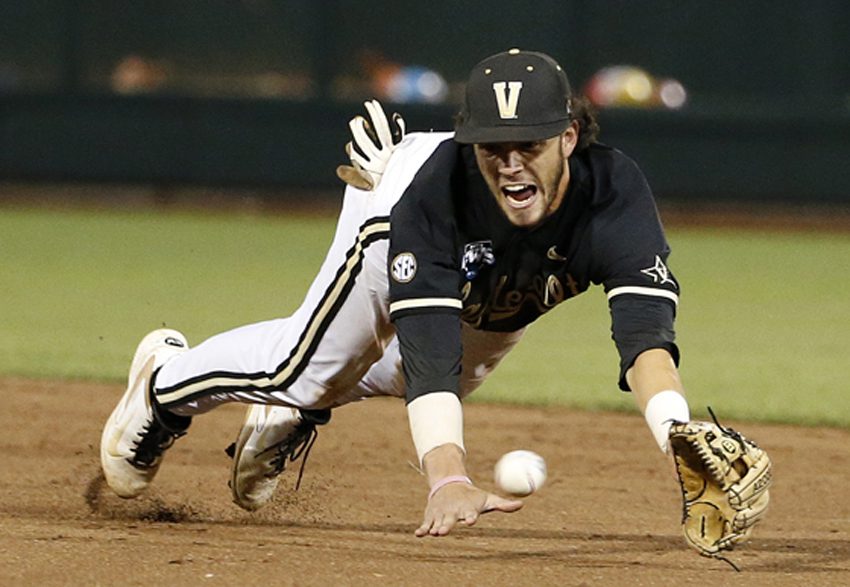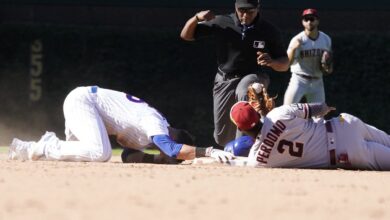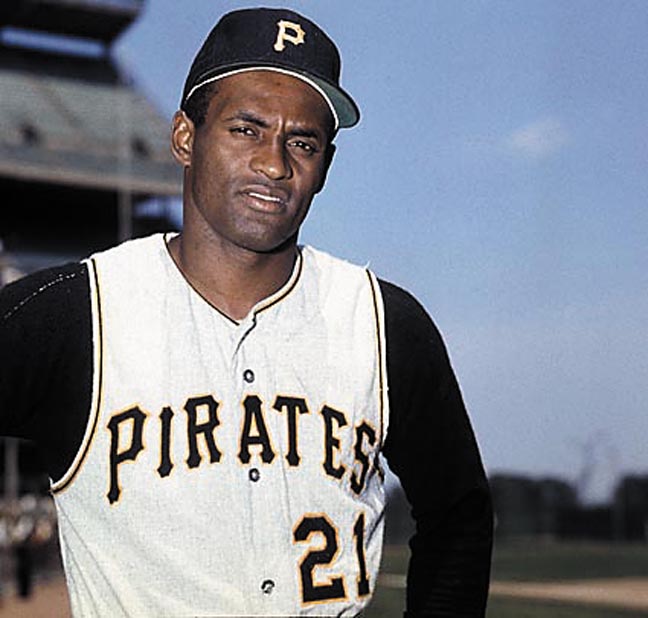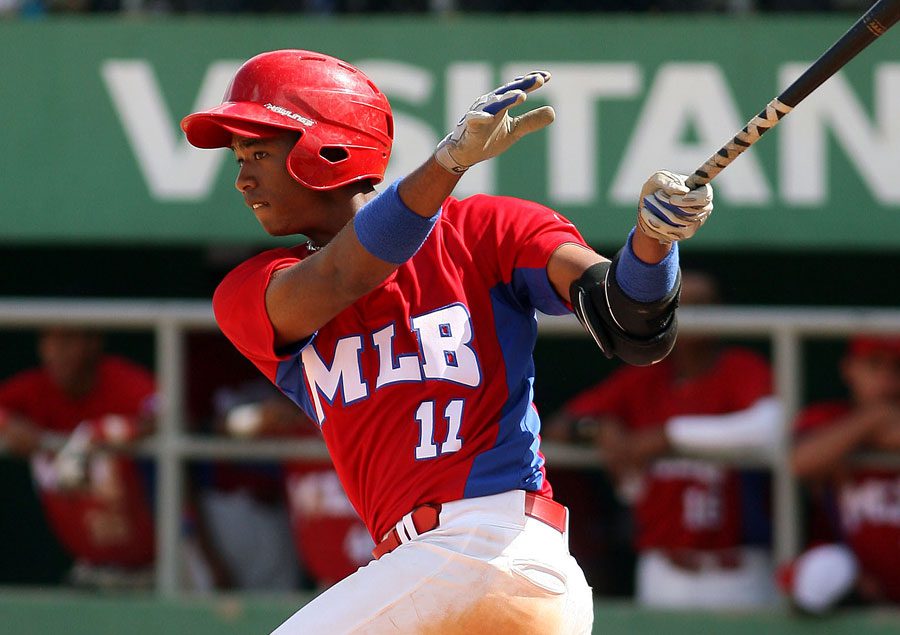

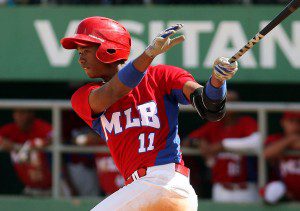
About this time last season, I pointed out that the Chicago Cubs were paving the team’s future with young Hispanic players. The organization’s top three prospects — Javier Baez (infielder), Albert Almora and Jorge Soler (outfielders) — received combined bonus money totaling $12.5 million. All are currently playing at the single-A and double-A levels, and should be performing at Wrigley Field by 2015, perhaps earlier for Baez.
Now, let’s fast forward to July 2, when this year’s signing period began for international amateur free agents. The Chicago Cubs were ready to play “Who Wants To Be A (Dominican) Millionaire,” inking #1 prospect Eloy Jimenez. After negotiating for a couple of days and the usual red tape, the 16-year-old agreed to a $2.8 million package that included a $250,000 college scholarship. Jimenez is a 6′-4″, 200-pound outfielder with baseball tools that make scouts drool. And the kid absolutely oozes confidence.
“I don’t want to just make it to the big leagues,” says Jimenez with a smile. “I want to be the best player to ever come from the Dominican Republic.”
Eloy Jimenez is so special it’s possible he could be roaming the Wrigley “jardin” with Almora and Soler by 2016. Ironically, that’s the final year of Theo Epstein’s contract as Chicago’s President of Baseball Operations. Apparently, Epstein’s philosophy is to stockpile talent. The Cubs next move was to select the #2 ranked youngster, Venezuela’s Gleyber Torres, who is a shortstop like Baez and superstar varsity incumbent Starlin Castro. Torres signed for a handsome bonus of $1.7 million, despite the fact Castro is locked in through 2019 with a $60.6 million deal.
In addition, the Chicago Cubs also grabbed a pitcher, Colombia’s Erling Moreno, who is trained by Edgar Renteria‘s brother, Edinson. They also acquired hurler Jefferson Mejia, 18, a 6’-7″, 240-pound giant who had paperwork problems last year and was ineligible for the selection process.
The Chicago Cubs wheeled and dealed with trades to gain extra bonus space and reportedly spent a hefty $5.6 million at this event, easily more money than any other team. With the exception of Jimenez and the more mature Mejia, who agreed to a pact worth $850,000, it could be argued the Cubs were a bit extravagant in a year when the crop of players were mediocre at best. And by putting all their eggs in one basket, Chicago likely cashed itself out, meaning the club will not be able to sign a player for more than $500,000 during the 2014-15 period.
Epstein, though, seems to have high regard for Alex Suarez, 30, who is the Cubs international scouting guru. Suarez was a ground-floor executive from Miami who worked his way up the ladder and pulled the trigger in signing Soler, a Cuban defector, for $6 million. He is also the reason why 48 percent of Chicago’s minor-league players are foreign-born, the vast majority who are Latino.
Suarez was a former collegiate star at the University of Tennessee from 2003-05, and once represented the Vols in the College World Series. But the former first baseman underwent three major surgeries and a Tommy John procedure that squashed any ideas of playing professionally.
“I wanted to stay in baseball, maybe as an area scout while I worked on my Masters Degree back home,” recalls Suarez, who was giving lessons to youngsters on the side. “But I got a few front-office interviews and that led to an entry level position with the Cubs.”
It makes perfect sense then, that the Tennessee Smokies, the Chicago Cubs double-A affiliate since 2011, is located in Knoxville, like Alex’s alma mater. And when he’s not negotiating free-agent contracts or working with Chicago Cubs minor league instructors Carmelo Martinez or Jose Flores, the energetic Suarez is busy crosschecking and evaluating.
This Latino “mindset” is something that young executives Epstein, Suarez and General Manager Jed Hoyer took to the next level. These men realize it’s smart to build from within utilizing Latino talent, because these kids are dominant in numbers, ability and drive for success.
Have the Chicago Cubs gone bananas, the plantain variety, in their search for Sammy Sosa-like impact players? Personally, I like the concept. And like my colleague Dan Kirby points out in a recent post, the Chicago Cubs are committed to rebuilding with quality home-grown kids as well. And there are no restrictions on money.
Alas, the Wrigley faithful must retain their patience, because the beloved Cubbies have nowhere to go but up. And there’s definitely light at the end of the tunnel.


